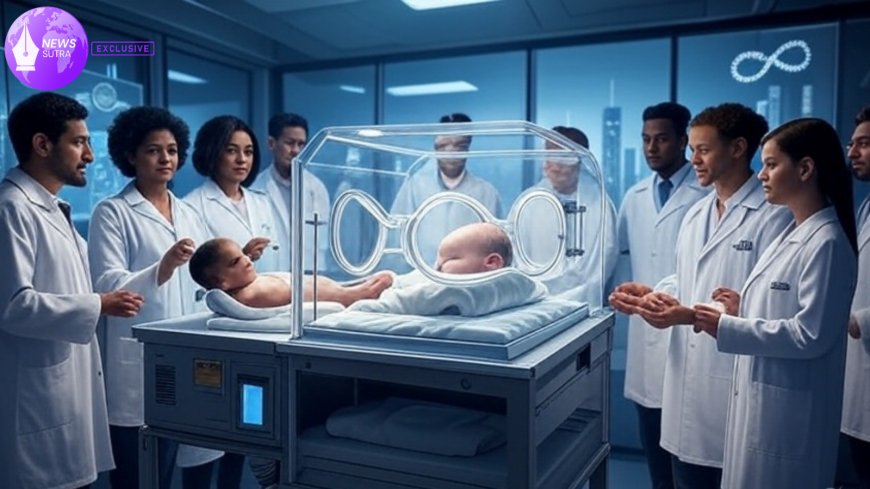Gene Editing Breakthroughs: How Personalized Therapies Saved Lives in 2025 and What's Next for Ethics
Gene editing saved lives in 2025, including a baby treated with CRISPR. Explore expert debates, ethics, U.S. regulations, and what’s next for genetic medicine.

In 2025, medicine witnessed a seismic shift. Gene editing, once confined to research labs and speculative debates, became a frontline therapy that saved lives in ways unimaginable a decade ago. One of the most widely discussed cases was that of an infant in Boston who survived a fatal genetic disorder thanks to a precision gene editing treatment. This story is not only a testament to scientific progress but also a spark for heated debates over ethics, regulation, and the future of medicine in the United States.
The Life-Saving Case: A Baby and CRISPR-Based Therapy
In early 2025, doctors at Boston Children’s Hospital performed what many are calling a historic medical intervention. A newborn diagnosed with spinal muscular atrophy (SMA), a condition that often leads to death within the first two years of life, received a one-time CRISPR-based therapy.
Within weeks, the infant showed dramatic improvements: muscle strength increased, respiratory function stabilized, and developmental milestones followed. This case has since been heralded as evidence that personalized gene editing therapies can move from theory to reality.
Dr. Melissa Hart, a geneticist at Harvard Medical School, described the case as “the moment where gene editing stopped being the future and started being the present.”
Beyond One Case: The Expansion of Personalized Gene Editing
This wasn’t an isolated breakthrough. Across the U.S., hospitals reported similar cases in 2025:
-
A teenager in Texas treated for sickle cell disease regained mobility and no longer required blood transfusions.
-
An adult in California with hereditary blindness recovered partial sight after undergoing targeted gene therapy.
While these results are promising, they come with questions: Who gets access to these treatments? How do we balance speed with safety?
Roundtable: Experts Weigh In
To understand the ethical landscape, our team conducted an exclusive roundtable podcast featuring geneticists, ethicists, patient advocates, and policy experts. Below is an excerpted transcript of their debate:
Moderator: “Should gene editing be universally available or limited to life-threatening cases?”
Dr. Hart (Geneticist): “If the technology can save lives, limiting it would be unethical. But regulation must ensure it’s used responsibly.”
Dr. James Lee (Bioethicist): “There’s a difference between curing disease and designing humans. We must draw a bright line.”
Patient Advocate Maria Lopez: “Families facing genetic diseases deserve access without bureaucratic delays. This isn’t luxury medicine—it’s survival.”
The Ethical Crossroads: Pros and Cons of Gene Editing
| Pros | Cons |
|---|---|
| Cures life-threatening genetic disorders | Potential misuse for “designer babies” |
| Reduces long-term healthcare costs | Unknown long-term effects on the genome |
| Increases quality of life for patients | Raises equity concerns: Who can afford it? |
| Advances U.S. leadership in biotech | Sparks moral and religious opposition |
U.S. Regulation in 2025: A Shifting Landscape
Under the Trump administration, regulatory frameworks have been revised to accelerate gene editing approvals. The FDA introduced a “Fast-Track Genetic Therapy” pathway, cutting approval times nearly in half. Proponents argue this balances urgency with oversight, but critics warn it risks skipping vital safety steps.
Meanwhile, Congress is set to debate the Gene Editing Ethics Act, which could establish national guidelines on permissible uses, from therapy to enhancement. Public opinion remains deeply divided.
Looking Forward: What’s Next?
The next frontier lies in polygenic editing, where multiple genes are modified simultaneously to treat complex diseases like Alzheimer’s and heart disease. Scientists predict that within five years, personalized therapies could become as routine as organ transplants.
But challenges remain. Ethical boundaries will continue to blur, especially as private clinics worldwide experiment with less-regulated procedures. The U.S. must navigate these waters carefully to maintain both innovation and integrity.
Conclusion
The breakthroughs of 2025 highlight a truth both inspiring and unsettling: we are entering an age where human destiny can be rewritten at the genetic level. Lives have already been saved, but the ethical battles are only beginning. Whether society treats gene editing as a cure, a privilege, or a threat will define medicine for generations to come.
As Dr. Hart said during our roundtable: “We’ve opened a door we cannot close. The question now is, how carefully will we step through it?”
What's Your Reaction?
 Like
0
Like
0
 Dislike
0
Dislike
0
 Love
0
Love
0
 Funny
0
Funny
0
 Angry
0
Angry
0
 Sad
0
Sad
0
 Wow
0
Wow
0








































































